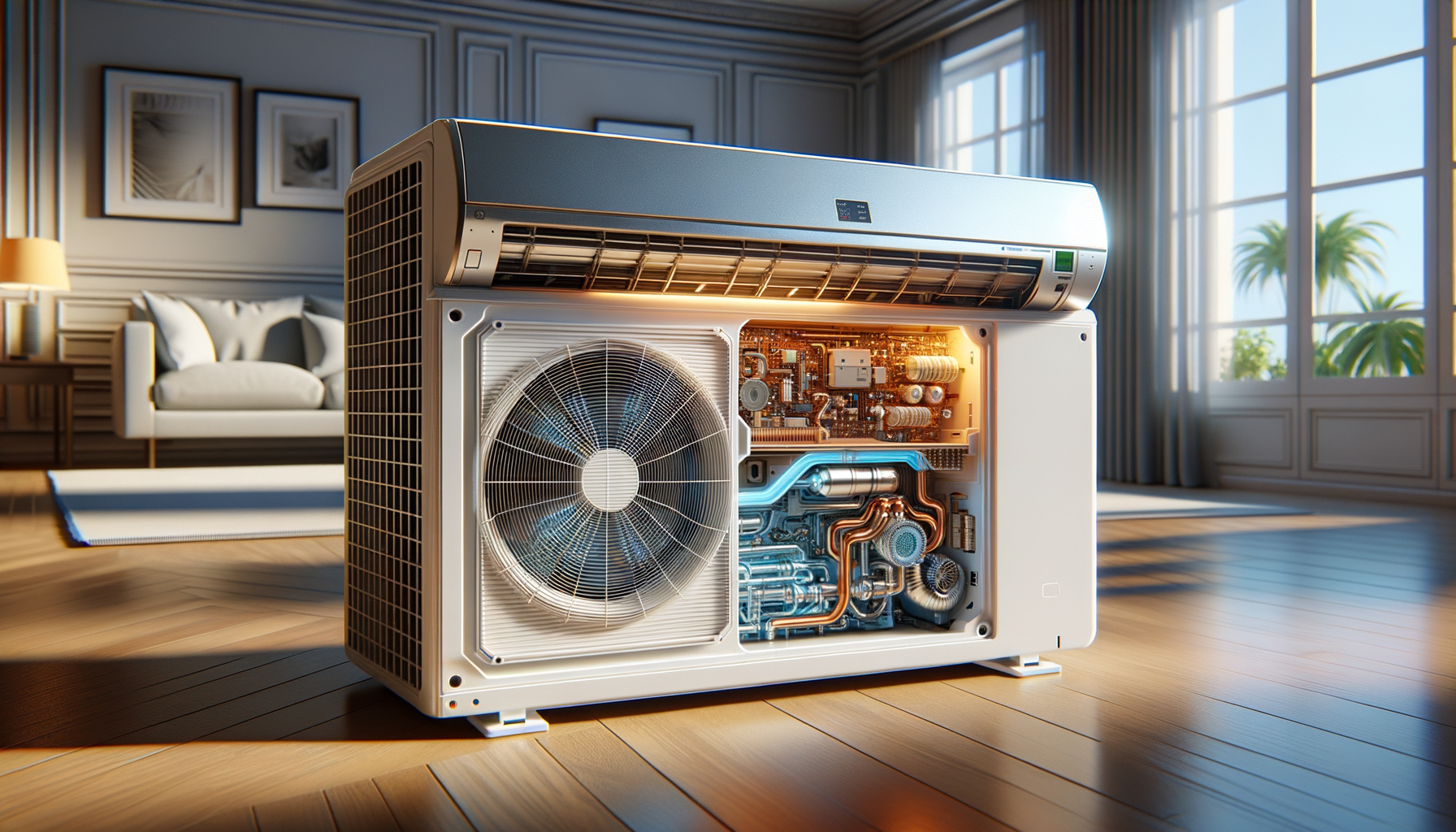Introduction to Ductless Air Conditioning
Ductless air conditioning systems, also known as mini-split systems, have become a popular choice for homeowners and businesses seeking efficient and flexible cooling solutions. Unlike traditional central air systems, ductless units do not require extensive ductwork, making them ideal for spaces where installing ducts is impractical or impossible. These systems consist of an outdoor compressor and one or more indoor air-handling units, offering a versatile approach to temperature control.
The appeal of ductless systems lies in their ability to provide zoned cooling, which allows users to control the temperature in individual rooms or areas independently. This feature not only enhances comfort but also contributes to energy savings, as users can cool only the spaces they use. Moreover, ductless systems are known for their quiet operation and sleek design, which can seamlessly blend into any interior.
Benefits and Advantages of Ductless Systems
Ductless air conditioning units offer several advantages over traditional HVAC systems, making them a compelling choice for many. One of the most significant benefits is their energy efficiency. By eliminating the need for ductwork, these systems reduce the energy loss associated with air traveling through ducts. According to the U.S. Department of Energy, duct losses can account for more than 30% of energy consumption for space conditioning in some homes.
Another advantage is the ease of installation. Ductless systems require only a small hole to connect the indoor and outdoor units, minimizing disruption to the structure and reducing installation time. This feature is particularly beneficial for older buildings or homes with limited space for ductwork.
Additionally, ductless systems offer improved air quality. Traditional HVAC systems can accumulate dust and allergens in the ducts, which are then circulated throughout the home. Ductless units, on the other hand, use multi-stage filtration to reduce dust, bacteria, and other particulates in the air, promoting a healthier indoor environment.
Comparing Ductless Systems to Traditional HVAC
When evaluating cooling options, it’s essential to consider how ductless systems compare to traditional HVAC setups. One of the most noticeable differences is the flexibility of ductless systems. With the ability to install multiple indoor units, homeowners can create customized climate zones tailored to their needs. This level of control is not typically available with central air systems, which cool the entire home uniformly.
In terms of energy consumption, ductless systems often have an edge due to their inverter technology, which adjusts the compressor speed to maintain the desired temperature efficiently. This contrasts with traditional systems that operate in an on/off cycle, consuming more energy.
However, it’s important to note that ductless systems may have higher upfront costs compared to conventional HVAC systems. Despite this, the long-term savings on energy bills and maintenance can offset the initial investment, making ductless systems a cost-effective choice for many.
Installation and Maintenance Considerations
Installing a ductless air conditioning system is generally straightforward, but it requires careful planning to ensure optimal performance. Professional installation is recommended to determine the best locations for the indoor and outdoor units, taking into account factors such as room size, insulation, and sun exposure.
Once installed, ductless systems require regular maintenance to function efficiently. This includes cleaning or replacing filters, checking for refrigerant leaks, and ensuring that the outdoor unit is clear of debris. Routine maintenance not only extends the lifespan of the system but also ensures it operates at peak efficiency.
Homeowners should also be aware of the potential need for additional units if their cooling needs change. Fortunately, the modular nature of ductless systems allows for easy expansion, accommodating growing or changing requirements without significant alterations to the existing setup.
Conclusion: Is a Ductless System Right for You?
Deciding whether a ductless air conditioning system is the right choice depends on various factors, including the specific needs of your space, budget, and long-term energy goals. These systems offer a flexible, energy-efficient solution for those looking to cool individual rooms or areas without the need for extensive ductwork.
For many, the benefits of ductless systems, such as zoned cooling, improved air quality, and ease of installation, outweigh the initial costs. However, it’s crucial to assess your unique requirements and consult with a professional to determine the most suitable option for your home or business.
Ultimately, ductless air conditioning systems represent a modern approach to cooling that aligns with the growing demand for energy-efficient and customizable solutions. Whether you’re renovating an older property or seeking a more efficient way to cool your home, ductless systems offer a compelling alternative to traditional HVAC options.




Leave a Reply